
Culture China
14:56, 19-Mar-2019
Intangible cultural heritage brings life to rural revitalization
By Wu Yan
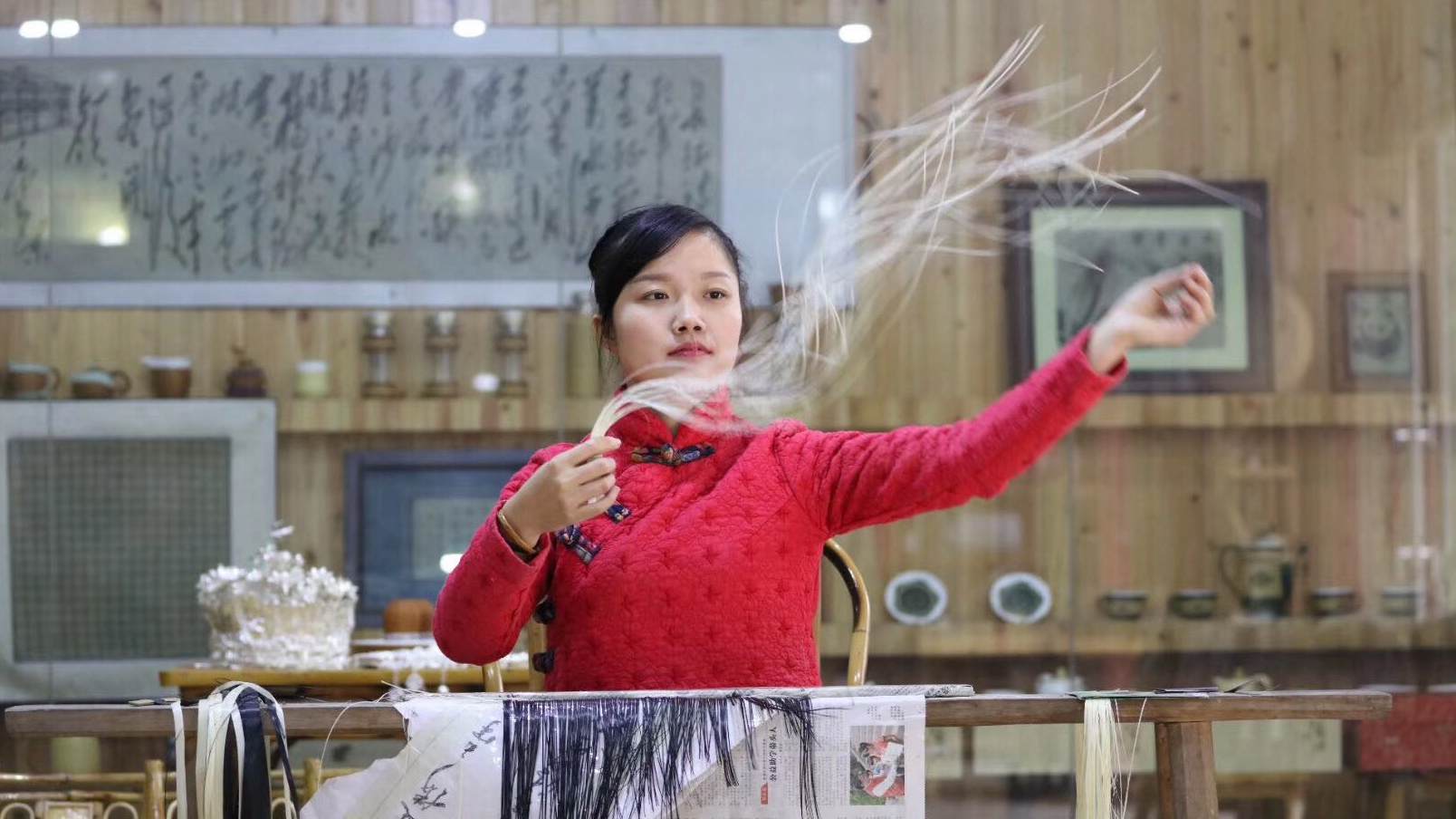
"In the process of rural revitalization, intangible culture heritages should not only be developed into industries with local characteristics to help relieve poverty, but also foster a culture of local characteristic," said Yang Changqin, a deputy to the 13th National People’s Congress and inheritor of Guizhou provincial intangible cultural heritage — Chishui bamboo weaving.
Born in 1990 in Yinjiang County, southwest China's Guizhou Province, Yang was sent by her school to Chishui, a county-level city in the province to learn Chishui bamboo weaving at 17.
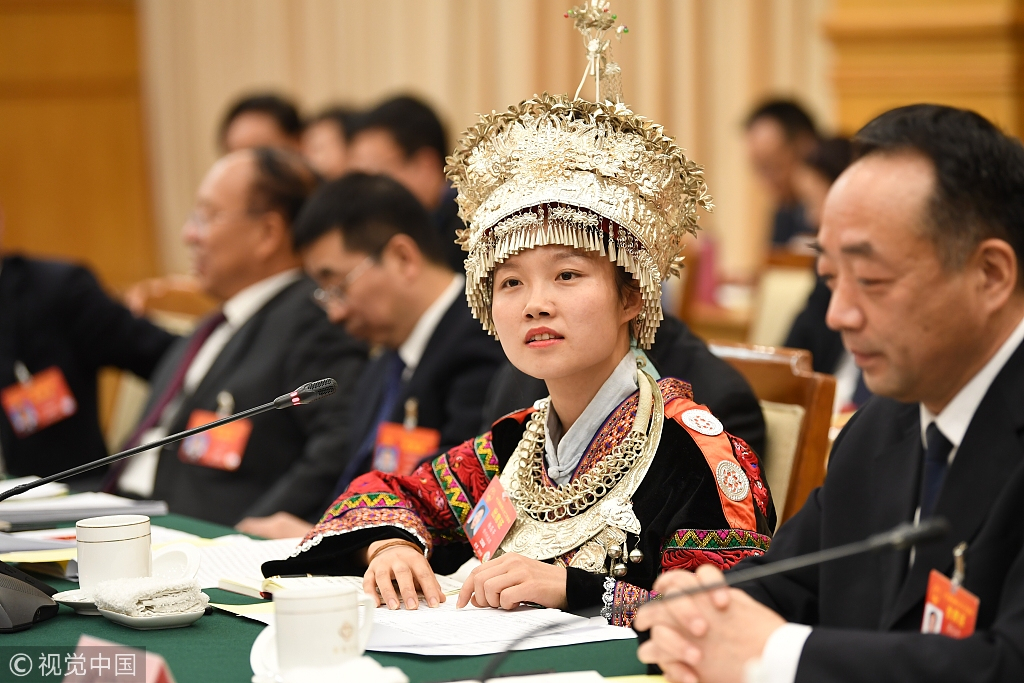
Yang Changqin attends Two Sessions in Beijing, March 7, 2019. /VCG Photo
Yang Changqin attends Two Sessions in Beijing, March 7, 2019. /VCG Photo
Chishui, located upstream on the Yangtze River, is one of China's famous bamboo growing centers, with over 86,600 hectares of the plant. Bamboo has become part of the local people's lives, and the tradition of bamboo weaving has a history of 400 years there.
After graduation, Yang took the "unpromising" old tradition as a career, and started a company in 2012 to make bamboo weaving products in Chishui, a place that was then a national-level poverty-stricken county.
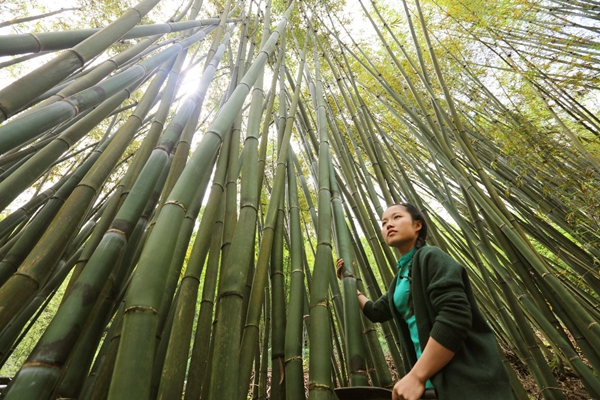
Yang Changqin checks bamboos in Chishui, Guizhou Province, southwest China, May 6, 2018. /Photo via Xinhua News Agency
Yang Changqin checks bamboos in Chishui, Guizhou Province, southwest China, May 6, 2018. /Photo via Xinhua News Agency
Now, her company has achieved an annual sales volume of three million yuan (447,700 U.S. dollars), refuting those who questioned her and the tradition before.
"We have to combine industry and culture by using intangible cultural heritage reasonably," Yang said, "If intangible cultural heritage is well utilized, it will exert a great impact in industry, in our life and in rural revitalization."
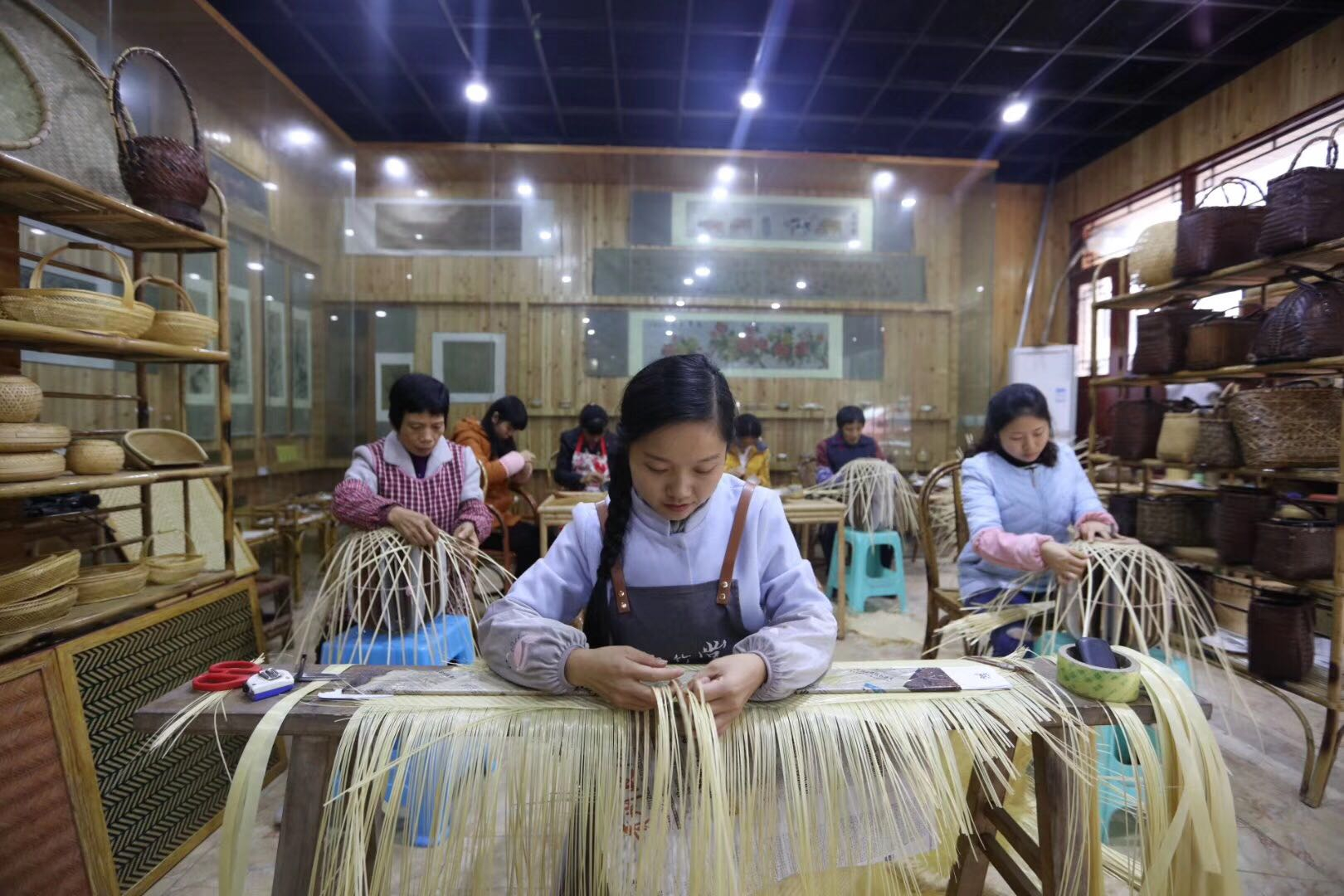
Yang Changqin (C) makes bamboo-weaving product at her workshop in Chishui, Guizhou, November 10, 2018. /Photo provided by Yang Changqin
Yang Changqin (C) makes bamboo-weaving product at her workshop in Chishui, Guizhou, November 10, 2018. /Photo provided by Yang Changqin
Taking Chishui as an example, if bamboo is sold as a raw material, they are only worth 1,000 yuan per ton, but if they are made into artwork or baskets, their value will increase dozens of times, and some artifacts may be sold more than 10,000 yuan each.
"In the future, each village must have their own characteristics," she said. Chishui, boasting Danxia landform, represents China Danxia as a World Natural Heritage Site since 2010. According to the official data, Chishui attracted more than 16 million tourists in 2017.
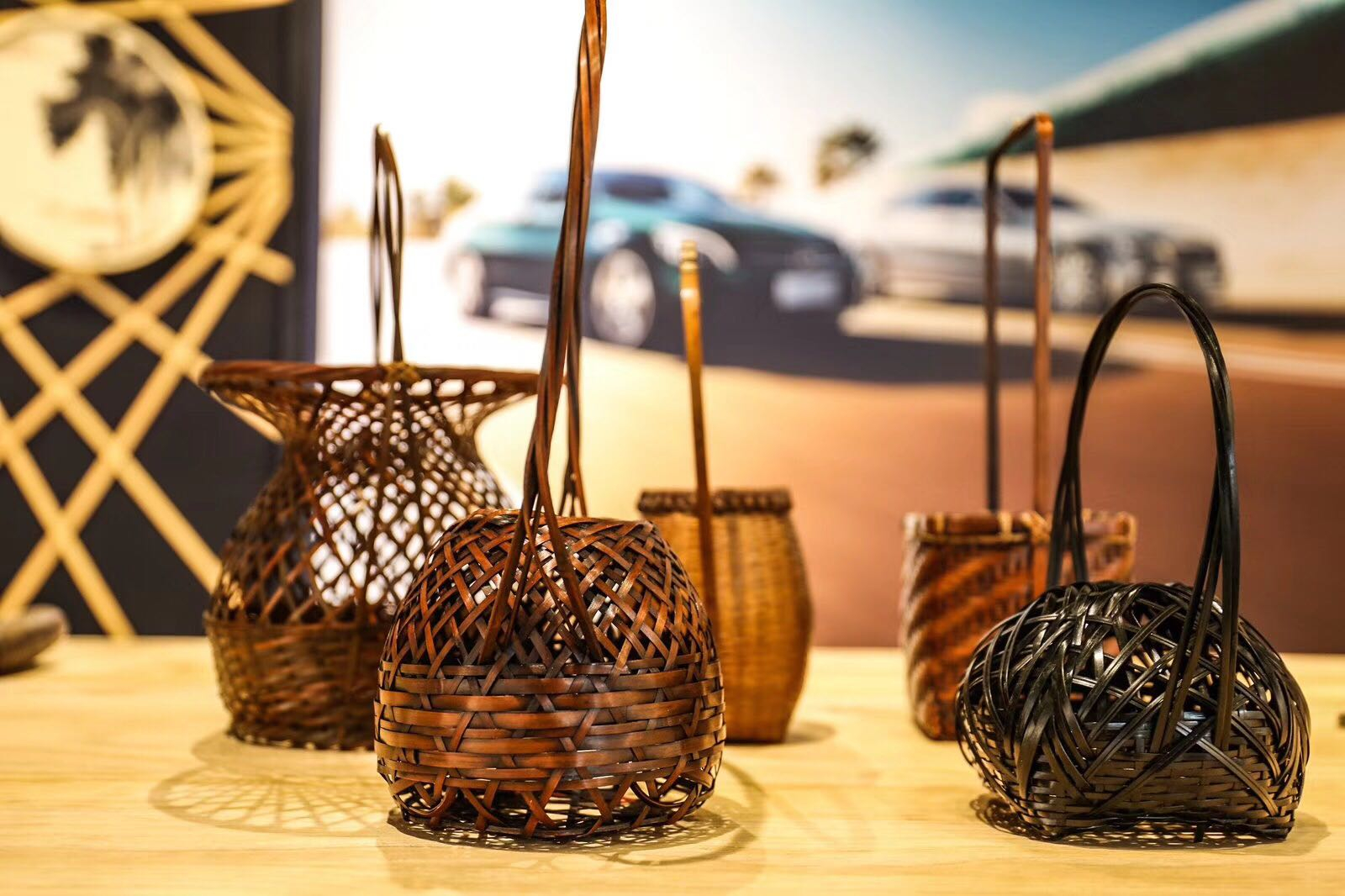
Bamboo-weaving products made by Yang Changqin's company are displayed. /Photo provided by Yang Changqin
Bamboo-weaving products made by Yang Changqin's company are displayed. /Photo provided by Yang Changqin
"If we visit somewhere and find it selling the same things as those in other tourist sites, we will not buy anything," said Yang. Bamboo-weaving products, on the contrary, display local characteristics and are welcomed by tourists, allowing the development of the industry to speed up there.
In Datong Town of Chishui, where Yang's workshop is located, six new bamboo-weaving workshops were set up last year. Yang established two Chishui bamboo weaving experience centers in Datong Town and a nearby tourist site respectively, and the number of her workers doubled to more than 40.

Cups with bamboo-weaving cover made by Yang Changqin's company are displayed. /Photo provided by Yang Changqin
Cups with bamboo-weaving cover made by Yang Changqin's company are displayed. /Photo provided by Yang Changqin
Yang said that people are pursuing an "experiential" consumption. "When people see how bamboo-weaving products are produced, they would know they are environmentally-friendly and contain humanistic elements," she said, "So they know their values and are willing to buy them. That's why more and more people are fond of intangible cultural heritage now."
"If a place does not integrate its unique culture into rural revitalization, every village looks same, they will definitely not have an enduring vitality," Yang said. Chishui was relieved from poverty in 2017 through years of developing green industries such as bamboo processing.

SITEMAP
Copyright © 2018 CGTN. Beijing ICP prepared NO.16065310-3
Copyright © 2018 CGTN. Beijing ICP prepared NO.16065310-3